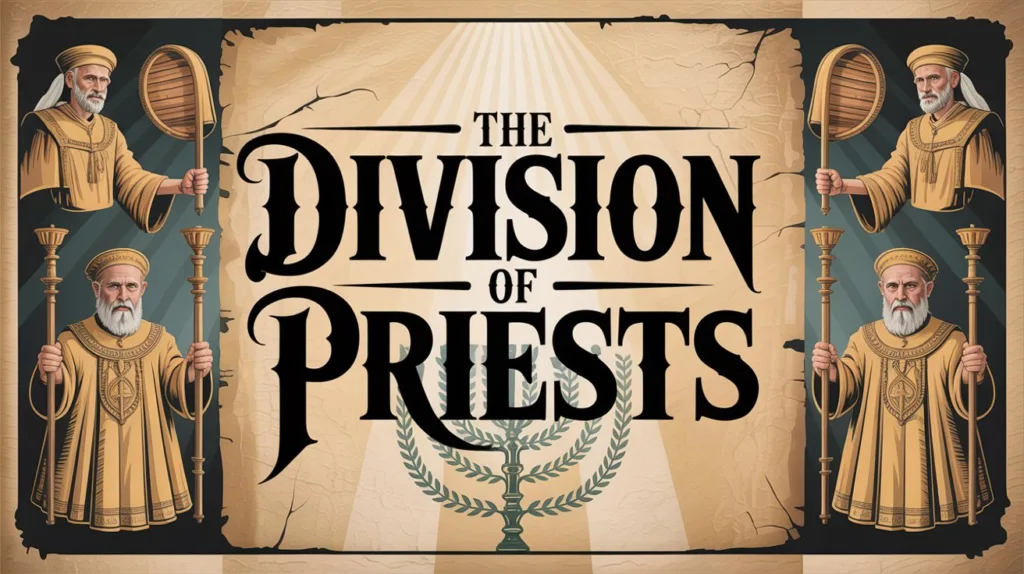The prophecy of the 70 weeks, found in Daniel 9:24–27, is one of the most remarkable and detailed prophecies in the Bible. It foretells the coming of the Messiah, His sacrificial death, and the timeline for God’s redemptive plan. This prophecy is unique in its precision, as it provides a chronological framework that predicted the exact timing of the Messiah’s first coming and hints at events yet to be fulfilled.
In this study, we will explore the 70 weeks prophecy, its short-term and long-term fulfillment, the gap between the 69th and 70th weeks, and what we are still waiting to see fulfilled.
Understanding the 70 Weeks: The Basics
In Daniel 9:24–27, the angel Gabriel delivers this prophecy to Daniel in response to his prayer for Israel’s restoration. The “70 weeks” are 70 sets of seven years, totaling 490 years. Gabriel divides these weeks into three segments:
- Seven weeks (49 years)
- Sixty-two weeks (434 years)
- One final week (7 years)
The prophecy specifies events that will occur within these time periods, focusing on the coming of the Messiah, the rejection of the Messiah, the destruction of Jerusalem, and a future period of tribulation.
Short-Term Fulfillment: The Messiah Foretold
The Start of the 70 Weeks
The starting point of the prophecy is Daniel 9:25:
“Know therefore and understand, that from the going forth of the command to restore and build Jerusalem until Messiah the Prince, there shall be seven weeks and sixty-two weeks.”
This decree to restore and rebuild Jerusalem is widely identified as the decree issued by Artaxerxes to Nehemiah in Nehemiah 2:1–8, which occurred in 445 BC. This sets the clock for the prophecy in motion.
The 69 Weeks: Arrival of the Messiah
The first 69 weeks (seven weeks + sixty-two weeks, or 483 years) extend from the decree to rebuild Jerusalem to the coming of the Messiah. Using the prophetic calendar of 360 days per year, 483 years equals 173,880 days.
When this timeframe is calculated from 445 BC, it leads to approximately AD 32, aligning with the triumphal entry of Jesus into Jerusalem, where He is publicly recognized as the Messiah (Luke 19:28–40). This fulfillment is precise, demons/”>demonstrating the accuracy of God’s Word.
The Messiah is “Cut Off”
In Daniel 9:26, Gabriel foretells that after the 62 weeks (totaling 69 weeks), “Messiah shall be cut off, but not for Himself.” This is a clear reference to Jesus’ crucifixion, where He died not for His sins but for the sins of the world (Isaiah 53:5–6).
The Gap Between the 69th and 70th Weeks
The Church Age: A Parenthesis in Prophecy
Following the 69th week, the prophecy introduces a gap before the 70th week begins. This gap is the present Church Age, a time when God’s redemptive focus has expanded to include Gentiles, fulfilling Jesus’ declaration in John 10:16: “And other sheep I have which are not of this fold; them also I must bring, and they will hear My voice; and there will be one flock and one shepherd.”
This period is not explicitly counted in the 70 weeks because it represents a pause in God’s prophetic timeline for Israel. Paul explains this in Romans 11:25–26, where he describes the “partial hardening” of Israel until the fullness of the Gentiles has come in.
The Destruction of Jerusalem: A Near Fulfillment
Daniel 9:26
also foretells the destruction of Jerusalem: “And the people of the prince who is to come shall destroy the city and the sanctuary.” This was fulfilled in AD 70 when the Roman general Titus destroyed Jerusalem and the temple. This tragic event marked the end of the Jewish sacrificial system and set the stage for the long-term fulfillment of the prophecy.
The Final Week: Future Fulfillment
The 70th Week: The Tribulation Period
The final week, or the 70th week, is a seven-year period often referred to as the Tribulation. This period is described in Daniel 9:27:
“Then he shall confirm a covenant with many for one week; but in the middle of the week he shall bring an end to sacrifice and offering.”
This verse introduces the “prince who is to come,” widely understood to be the Antichrist. During this time, he will make a covenant with Israel for seven years but will break it halfway through, desecrating the temple and persecuting God’s people. This aligns with Jesus’ description of the “abomination of desolation” in Matthew 24:15 and the events detailed in Revelation 13.
The Great Tribulation
The latter half of the 70th week is known as the Great Tribulation (Matthew 24:21). This will be a time of unprecedented suffering, but it will culminate in the return of Jesus Christ, who will establish His millennial kingdom.
The End of the 70 Weeks: God’s Redemptive Plan
The prophecy of the 70 weeks concludes with the ultimate fulfillment of God’s purposes, as outlined in Daniel 9:24:
“Seventy weeks are determined for your people and for your holy city, to finish the transgression, to make an end of sins, to make reconciliation for iniquity, to bring in everlasting righteousness, to seal up vision and prophecy, and to anoint the Most Holy.”
To Finish the Transgression: The rebellion of humanity will come to an end as Christ establishes His kingdom.
To Make an End of Sins: Jesus’ atoning work on the cross will be fully realized, eradicating sin from His people.
To Make Reconciliation for Iniquity: This refers to the reconciliation achieved through Jesus’ sacrifice (Colossians 1:20).
To Bring in Everlasting Righteousness: Christ’s reign will establish a kingdom of perfect justice and righteousness.
To Seal Up Vision and Prophecy: All prophecies concerning Christ and His kingdom will be fulfilled.
To Anoint the Most Holy: This likely refers to the consecration of the millennial temple, signifying God’s presence among His people.
My Final Thoughts
The 70 weeks of Daniel provide an overview of God’s redemptive plan, pointing to Jesus’ first coming, His sacrificial death, and the events that will lead to His return. While much has already been fulfilled, we await the final week when Christ will defeat the forces of evil and establish His eternal kingdom.
As we reflect on this prophecy, let us live with a sense of urgency, faith, and hope, trusting in the God who holds all of history in His hands.





 Get the book that teaches you how to evangelize and disarm doctrines from every single major cult group today.
Get the book that teaches you how to evangelize and disarm doctrines from every single major cult group today.